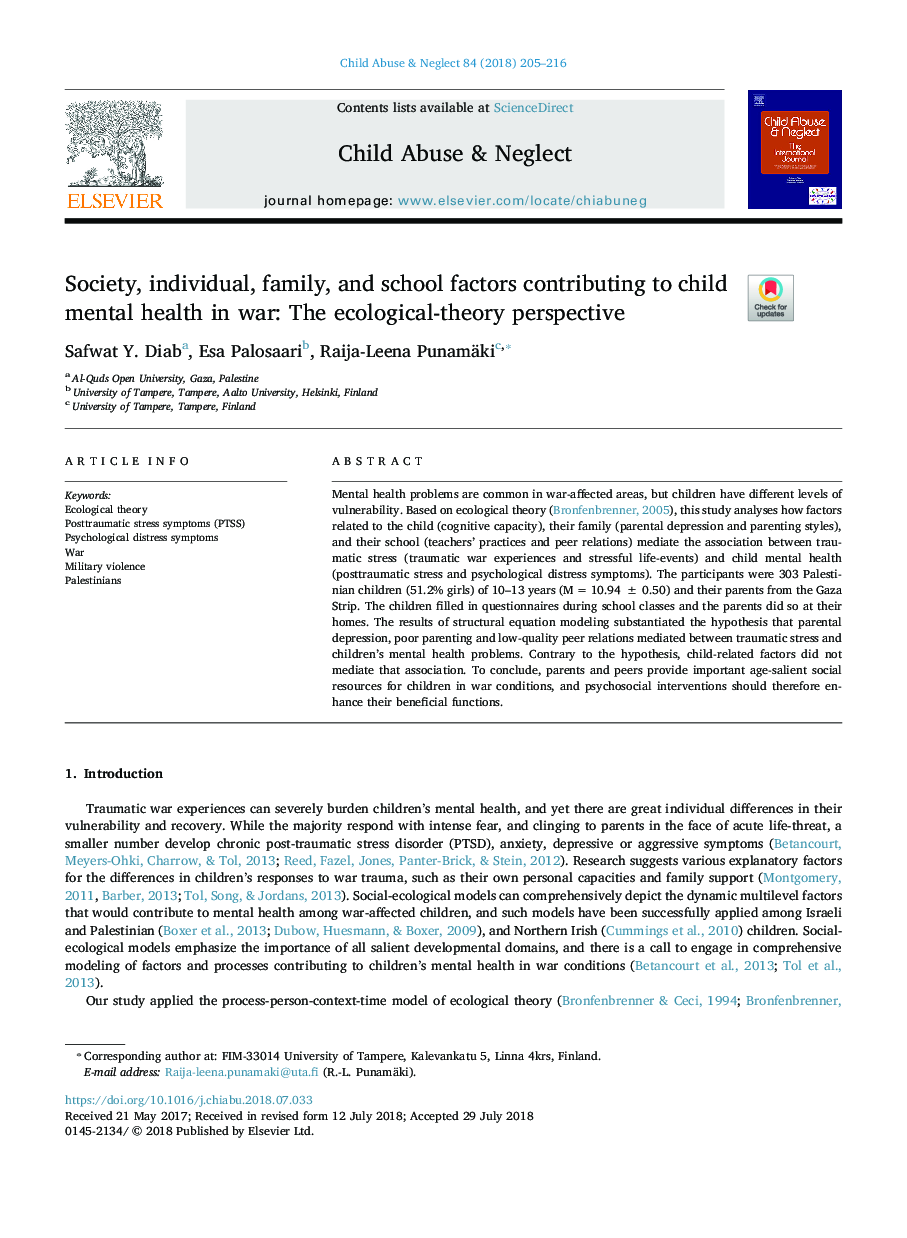| Article ID | Journal | Published Year | Pages | File Type |
|---|---|---|---|---|
| 6831716 | Child Abuse & Neglect | 2018 | 12 Pages |
Abstract
Mental health problems are common in war-affected areas, but children have different levels of vulnerability. Based on ecological theory (Bronfenbrenner, 2005), this study analyses how factors related to the child (cognitive capacity), their family (parental depression and parenting styles), and their school (teachers' practices and peer relations) mediate the association between traumatic stress (traumatic war experiences and stressful life-events) and child mental health (posttraumatic stress and psychological distress symptoms). The participants were 303 Palestinian children (51.2% girls) of 10-13 years (Mâ=â10.94â±â0.50) and their parents from the Gaza Strip. The children filled in questionnaires during school classes and the parents did so at their homes. The results of structural equation modeling substantiated the hypothesis that parental depression, poor parenting and low-quality peer relations mediated between traumatic stress and children's mental health problems. Contrary to the hypothesis, child-related factors did not mediate that association. To conclude, parents and peers provide important age-salient social resources for children in war conditions, and psychosocial interventions should therefore enhance their beneficial functions.
Keywords
Related Topics
Health Sciences
Medicine and Dentistry
Perinatology, Pediatrics and Child Health
Authors
Safwat Y. Diab, Esa Palosaari, Raija-Leena Punamäki,
